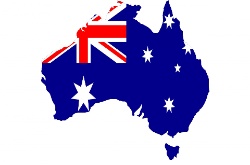Asylum Seekers Stuck In Limbo At EU-Funded Camp In Greece
The situation of 1,000 asylum seekers at the EU-funded “new Malakasa” detention center on the outskirts of Athens in Greece is gravely concerning, the Euro-Mediterranean Human Rights Monitor said in a statement today. With no running water, frequent power outages and tents unequipped to withstand harshly cold winters, the appalling conditions migrants and asylum seekers are forced to endure indefinitely in these camps pose serious risks to their physical and mental health and wellbeing.
In March 2020, as the Greek government unlawfully issued an emergency decree that suspended asylum procedures, migrants arriving to the country were placed in informal detention facilities such as Kleidi and Serres centers, the “Rhodes” Navy vessel, and the “new Malakasa” center. New Malakasa later became a pilot project for Greek’s Ministry of Migration and Asylum. It has received €4.9 million of funding for construction and maintenance from the EU’s emergency assistance of Asylum, Migration and Integration Fund (AMIF) as part of the METOIKOS program.
Now housing around 1,000 asylum seekers from Syria, Somalia, Congo and Afghanistan, the living conditions in the new Malakasa camp raise serious concerns in regards to the resident’s safety, security and wellbeing. Despite the generous EU funding, the camp still lacks necessary infrastructure such as running water, common spaces or adapted spaces for women and children. Electricity shortages are frequent, medical care is inadequate, and the tents where the residents are confined are highly unsustainable. A footage of the tents in new Malakasa dating to December 2020 clearly indicated how those tents are extremely vulnerable and unequipped to withstand cold temperatures, harsh wind, and heavy rain.
Furthermore, residents of the new Malakasa complained that the camp is rife with violence and sexual harassment. They similarly complained that children are deprived of their right to proper education or safe play spaces, and instead are playing in dirt and receive informal education. The absence of wi-fi connection in the camp further deprives children from accessing online education.
“The dire conditions at the new Malakasa camp in Greece violate the migrants’ right to adequate housing and health, as enshrined in the Universal Declaration of Human Rights and the International Covenant on Economic, Social and Cultural Rights,” said Muhammad Shehada, Europe Regional Manager at Euro-Med Monitor. “The EU should ensure that its funding is going to the right hands and demand from the Greek government concrete actions towards the respect, protection and fulfillment of the rights of asylum seekers in its custody.”
Euro-Med Monitor recalls that Art. 25 of the Universal Declaration of Human Rights affirms that “Everyone has the right to a standard of living adequate for the health and well-being of himself and of his family, including food, clothing, housing and medical care and necessary social services, and the right to security in the event of (…) lack of livelihood in circumstances beyond his control”. We similarly emphasize Art. 12 of the International Covenant on Economic, Social and Cultural Rights, ratified by all 27 EU member states, and Art. 17.2 of the Directive 2013/33/EU, which lay down standards for the reception of applicants for international protection, stating that “Member States shall ensure that material reception conditions provide an adequate standard of living for applicants, which guarantees their subsistence and protects their physical and mental health”.
Euro-Med Monitor, therefore, calls on the EU Commission and Greek Government to work immediately towards meaningfully improving the living conditions of asylum seekers in the EU-funded new Malasaka center, including providing them with adequate accommodation, protection and food in addition to regular access to healthcare, education and common spaces. We further call on the Greek government to expedite the asylum process in order to allow for the integration of asylum seekers in society rather than confining them for inhumanely long periods to detention centers.


 Greenpeace: 'Desperate And Deceitful'- Deep Sea Mining Frontrunner Turns Its Back On Pacific Nations
Greenpeace: 'Desperate And Deceitful'- Deep Sea Mining Frontrunner Turns Its Back On Pacific Nations 350.org: Australia Announces Election Dates, Pacific Islanders Rally To Vote For Climate
350.org: Australia Announces Election Dates, Pacific Islanders Rally To Vote For Climate UNICEF Aotearoa NZ: Global Aid Funding Cuts - 14 Million Children At Increased Risk Of Severe Malnutrition And Death
UNICEF Aotearoa NZ: Global Aid Funding Cuts - 14 Million Children At Increased Risk Of Severe Malnutrition And Death Oxfam Aotearoa: Humanitarian Operations In Gaza Severely Hampered; Famine Risks Increasing
Oxfam Aotearoa: Humanitarian Operations In Gaza Severely Hampered; Famine Risks Increasing UN News: Migrant Deaths In Asia Hit Record High In 2024, UN Data Reveals
UN News: Migrant Deaths In Asia Hit Record High In 2024, UN Data Reveals Sonali Kolhatkar, IMI: First, They Came For The Venezuelans
Sonali Kolhatkar, IMI: First, They Came For The Venezuelans